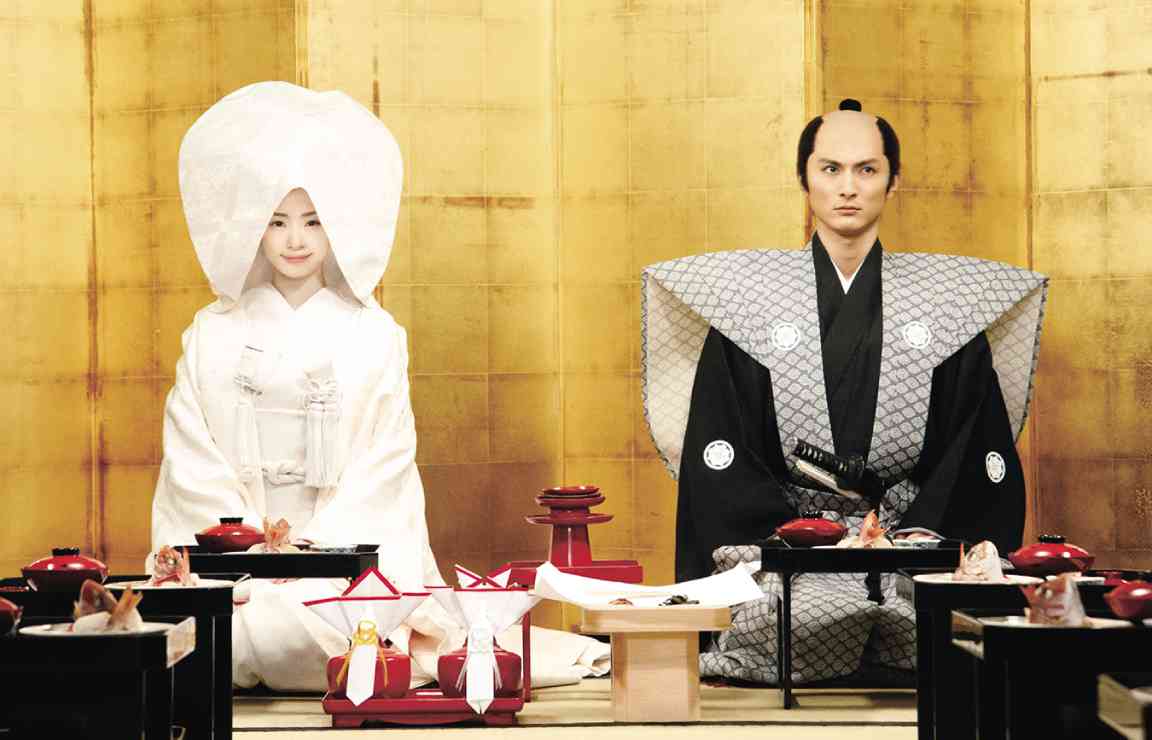Savoring Japan through cinema
This year’s Japanese Film Festival Eiga Sai gets a big boost from the A-list Tokyo International Film Festival, Shuji Takatori, director of the Japan Foundation, told the Inquirer.
Last year, the Tokyo fest signed a landmark agreement with UniJapan and the Japan Foundation (through the Japan Foundation Asia Center), to implement various cultural programs.
“This year’s Eiga Sai marks the beginning of our collaboration with the Tokyo fest,” Takatori explained. “Tokyo fest representatives advised us and chose six of the 11 films in the lineup.”
The annual Eiga Sai, which will be held at Shang Cineplex of the Shangri-La Plaza mall in Mandaluyong starting tomorrow until July 19, will screen 11 films in two sections: Japanese Contemporary Films (six films) and Savory Japan (five films). The former tackles various issues in modern-day Japan, while the latter turns the spotlight on washoku or Japanese food.
Highlight of the Japanese Contemporary Films section is Takashi Yamazaki’s “Parasyte,” which was the closing film at the Tokyo fest last year. Based on a popular manga (comic book), the sci-fi/fantasy flick was also shown at the Udine Far East Film Festival last April.
Article continues after this advertisementAccording to Takatori, organizers endeavored to include the latest films in the Eiga Sai lineup. “All the films were released in the last five years.”
Article continues after this advertisementHigh point
Another high point of the Japanese Contemporary Films section is the opening movie, Yuya Ishii’s “Our Family”—which was shown at the Montreal, Busan and Taipei Golden Horse fests last year.
Ishii will attend the opening tonight. The director, whose 2013 film “The Great Passage” was Japan’s entry in the best foreign language film category of last year’s Academy Awards, will give a talk on July 11, 4:30 p.m. at Shang Cineplex Cinema 2.
The other films in the Japanese Contemporary Films section are not only well-regarded, but also well-traveled.
Shinobu Yaguchi’s comedy “Wood Job!” won the Netpac Award in the Vision Express section of the Puchon International Fantastic Film Festival last year.
Hideki Takeuchi’s time-traveling comedy “Thermae Romae II” was shown at the Sitges International Fantastic Film Festival of Catalonia, Hawaii International Film Festival and the Udine Far East fest where it won the My Movies Audience Award last year.
Tatsushi Omori’s drama movie “Tada’s Do-It-All House: Disconcerto” competed in the Dragons &Tigers tilt of the Vancouver International Film Festival and the Free Spirit section of the Warsaw Film Festival, and opened the Kaohsiung Film Festival last year.
Lastly, Taisuke Kawamura’s manga-based rom-com “Princess Jellyfish” was screened at the Hong Kong International Film Festival and Taipei Golden Horse Fantastic Film Festival this year.
With the renewed, “second-wave” popularity of ramen and Japanese sweets, Eiga Sai cooked up an entire section on the country’s gustatory delights, said Takatori.
The five food-themed films focus on different culinary aspects: garnish (Osamu Minorikawa’s “It’s a Beautiful Life: Iridori”), cakes and pastries (Yoshihiro Fukagwa’s “Patisserie Coin de Rue”), Kaga clan recipes (Yuzo Asahara’s “A Tale of Samurai Cooking: A True Love Story”), ramen (Takashi Innami’s docu “The God of Ramen”) and Nippon dishes in general (Junichi Suzuki’s comprehensive 2015 docu “Wa-Shoku Dream: Beyond Sushi”).
Surely, this year’s Eiga Sai is a veritable feast for the senses.
(bayanisandiegojrgmail.com)

